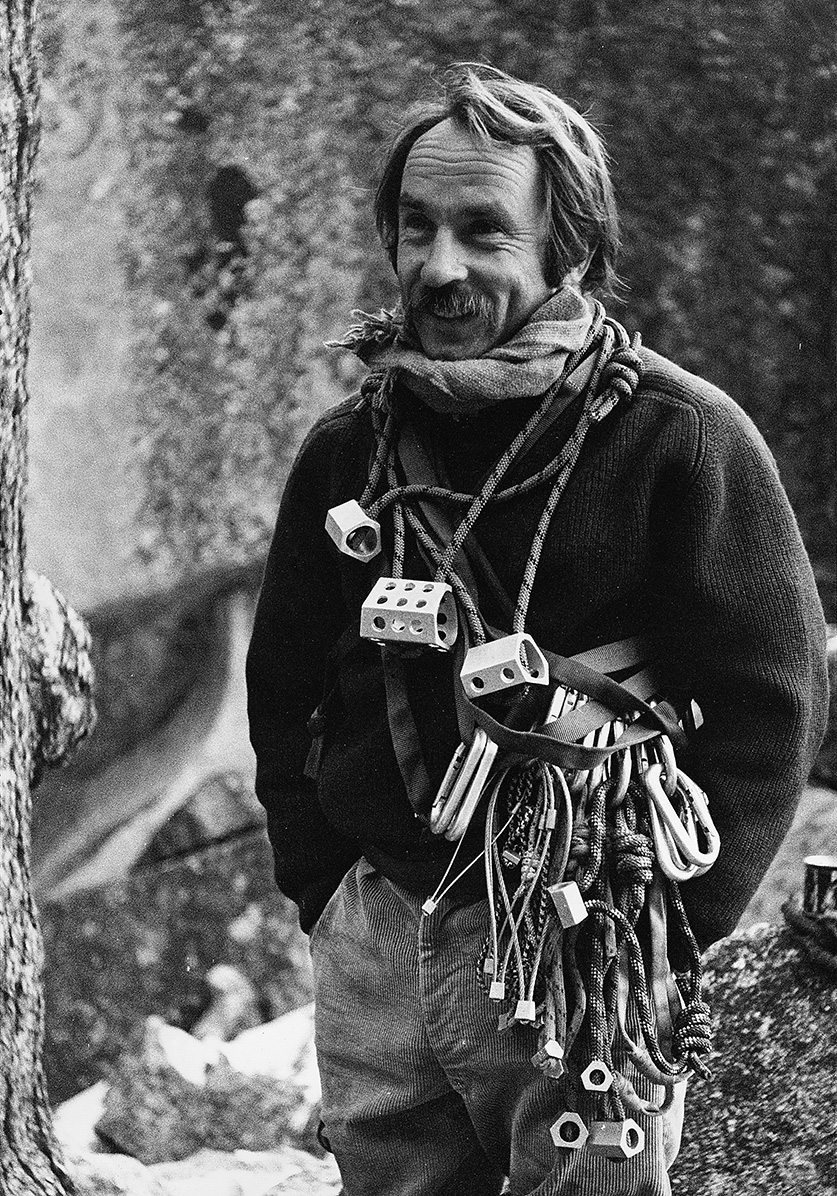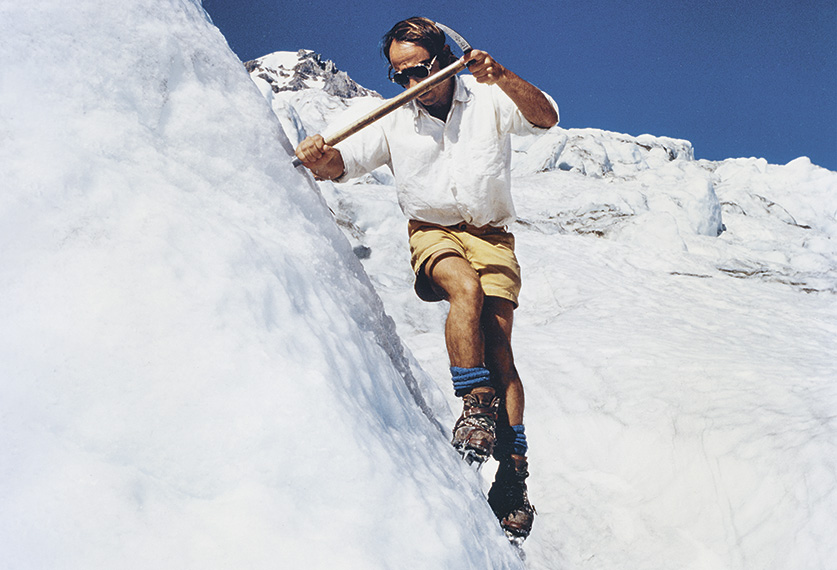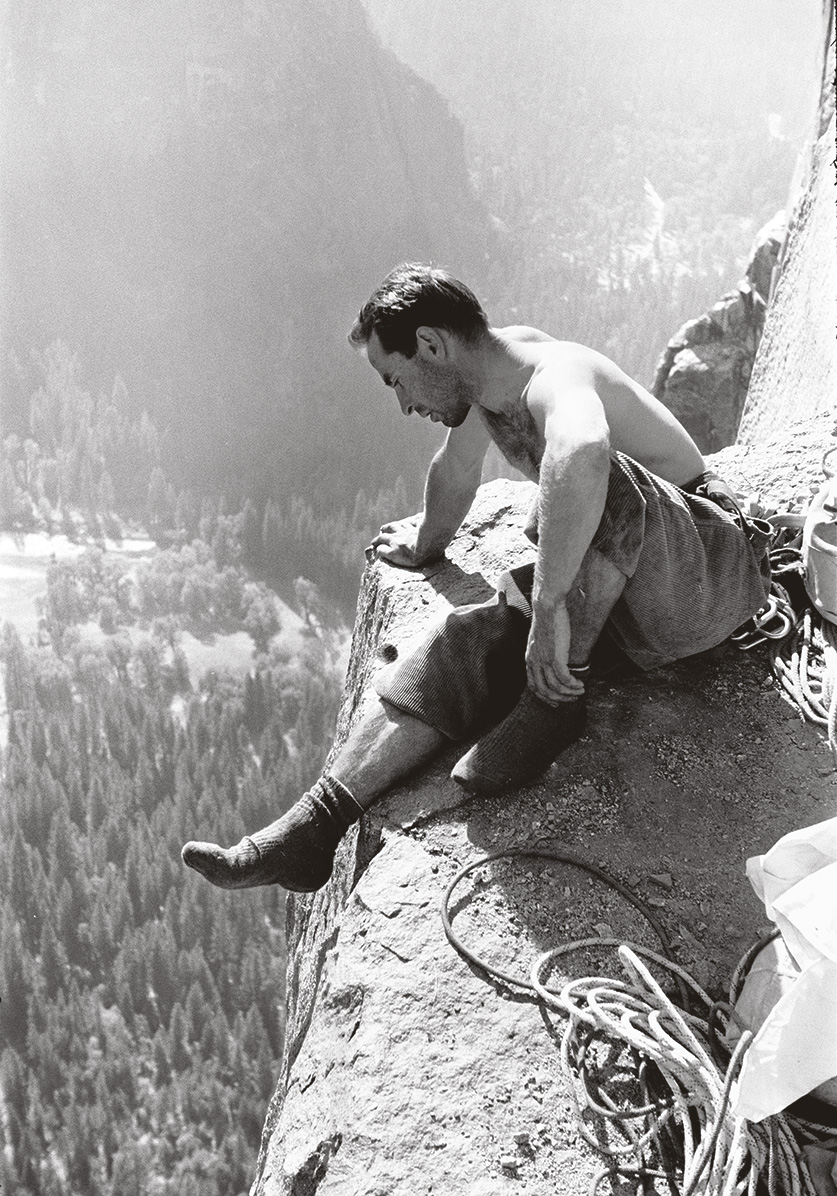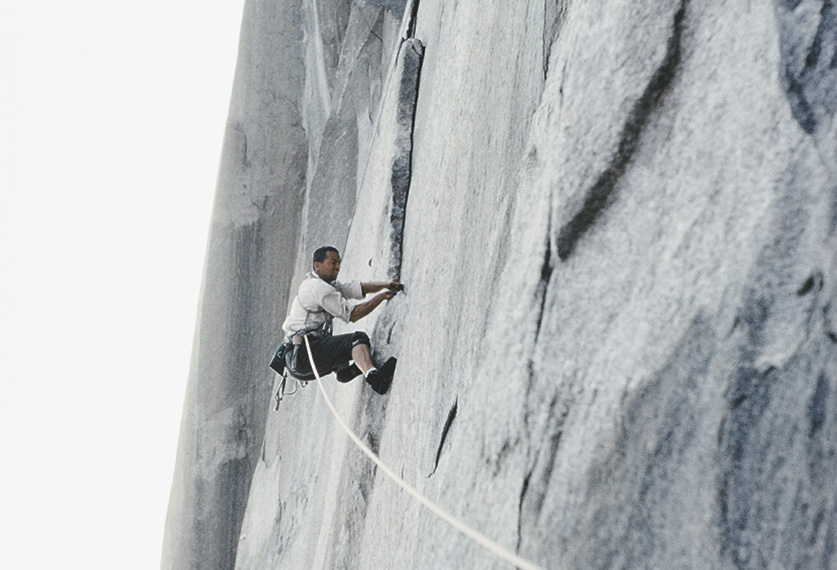
Patagonia
A truly green company
Patagonia is an American success story — only without the greed, and with a deep commitment to ethics and the environment. At the heart of this “activist company” stands an exceptional climber turned visionary entrepreneur: Yvon Chouinard.
Patagonia likes to define itself as an activist brand, a standard-bearer for responsible capitalism. And while that might sound like a stretch, it is far from the hollow slogans so often recycled in the outdoor industry. The California-based label cannot credibly be accused of greenwashing. Environmentalism is in its DNA, woven into the fabric of the company since its earliest days.
The story begins in 1957 in the uninspiring suburb of Burbank, Los Angeles, in a small backyard workshop belonging to the Chouinard family. At just 19, Yvon, already a passionate climber, was hand-forging reusable pitons and carabiners, dissatisfied with the flimsy equipment then on the market. The craft came naturally: his father, a Québécois adventurer turned mechanic and plumber, had passed down both his skills and resourcefulness. In those early days, Chouinard survived by selling gear from the trunk of his car.
A Defining Expedition at Fitz Roy
At the same time, his climbing career was taking off, filled with bold achievements that would become part of mountaineering history. There was a first ascent of the Grand Teton in 1961 with Tom Frost, another on Yosemite’s legendary El Capitan in 1964, and most memorably, in 1968, a climb of Fitz Roy in Patagonia with four friends. That experience proved so transformative that the silhouette of the Andean peak (3,405 m), straddling the Argentine-Chilean border, would later become the brand’s emblem.
Between these expeditions and his bohemian lifestyle, Chouinard deepened his bond with the natural world — a connection that shaped both his philosophy and his business. His guiding principles, even then, were quality and durability. Demand for his gear grew so quickly that in 1965 he partnered with Tom Frost (1936–2018), combining Frost’s engineering expertise with his own vision. Their company, Chouinard Equipment Ltd, soon became America’s leading supplier of climbing hardware.
Saying No to Planned Obsolescence
In 1972, they introduced “clean climbing” with the first removable nuts, revolutionizing the sport. Soon after, they expanded into durable outdoor apparel, some of it made from recycled PET plastic — pioneering moves at the time. In 1973, Chouinard Equipment gave birth to Patagonia, shifting the focus entirely to clothing. The first store opened in Ventura, just north of Los Angeles, a stone’s throw from a favorite surf break where the team would escape on lunch breaks. Surfing, too, would become part of the brand’s universe — in 2016, Patagonia launched the world’s first wetsuit made entirely from plant-based materials.
By the mid-1990s, Patagonia was pushing boundaries again, introducing technical apparel made from organic cotton. It was a bold, risky cultural shift. As Chouinard likes to put it: “We set out to build the best products possible, because only products that last a lifetime truly minimize their impact. You don’t need to buy a new jacket every three years.”
A Radical, Embodied Ecology
To drive that message home, Patagonia ran a shock ad in the New York Times in 2013. Its slogan? “Don’t buy this jacket.” The brand’s ethos is anchored in durability, summed up in Chouinard’s mantra: “Repair, reuse, recycle.” Staying true to this, in 2017 Patagonia launched a program inviting customers to return worn gear to be cleaned, repaired, and resold, rewarding them with credits toward future purchases.
The company also commits 1% of annual sales to environmental NGOs through One Percent for the Planet, an initiative co-founded by Chouinard and now supported by more than 2,000 companies worldwide. Over 3,000 associations in 18 countries have benefited — including Mountain Wilderness in Switzerland. In 2016, Patagonia went further still, donating 100% of its Black Friday revenues — a staggering $10 million that year — to these same causes.
Unapologetically Political
Patagonia does not hesitate to wade into politics when the planet is at stake. This began as early as 1988, with a campaign to stop urban sprawl in Yosemite Valley. In 2017, the company joined Native American tribes and environmental groups in suing President Trump over his decision to slash two national monuments in Utah. In 2018, Patagonia announced it would donate the $10 million in tax cuts it had received under Trump’s “irresponsible” reforms to organizations fighting climate change.
Such stances have earned Patagonia an almost unmatched reputation for integrity. As Chouinard succinctly puts it: “Without a healthy planet, there are no shareholders, no customers, no employees. The ultimate role of any business should be to protect our environment.”
Today, at 81, Yvon Chouinard continues to live in harmony with nature — surfing, climbing, or indulging in the meditative art of fly-fishing, a pursuit that has inspired many of his most brilliant ideas.
As Victor Hugo once wrote, “Nothing is more powerful than an idea whose time has come.” Yvon Chouinard’s ideas, it seems, are here to stay.















